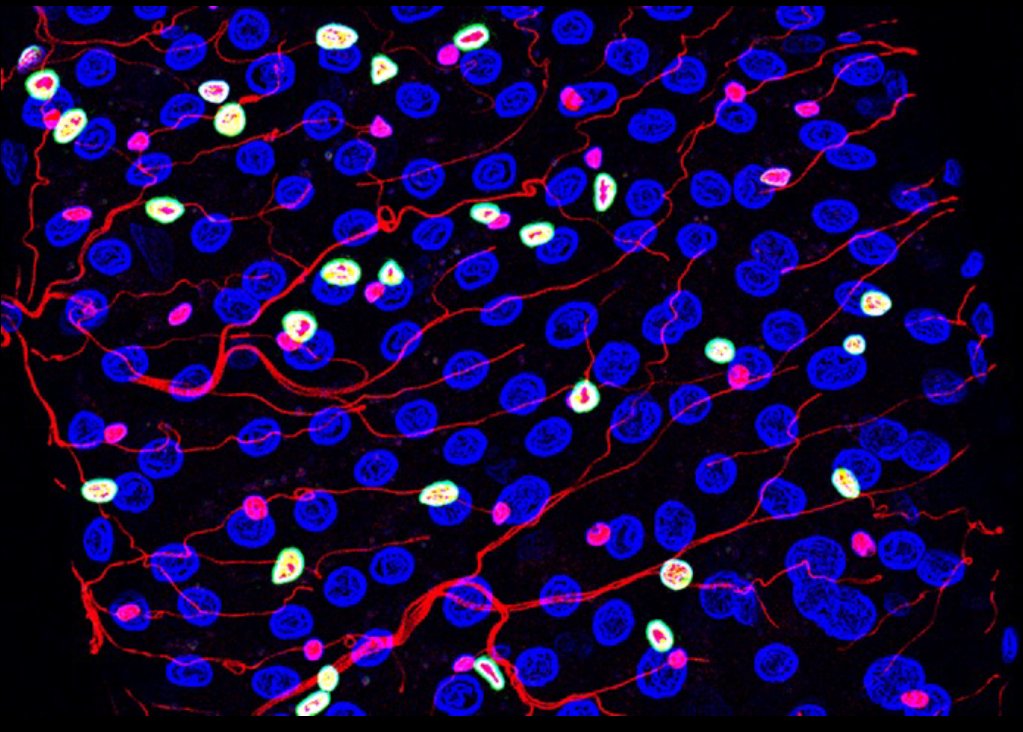
- This event has passed.
Julien COLOMBANI
15/02/2024 at 15:00
Event Navigation
From: University of Copenhagen
Will give a seminar entitled:
The role of two niche-derived signals in coupling
environmental cues with tissue turnover rates and adaptive gut resizing
Rapidly renewable tissues adapt different strategies to cope with environmental insults. While tissue repair is associated with increased intestinal stem cell (ISC) proliferation and accelerated tissue turnover rates, reduced calorie intake triggers a homeostasis-breaking process causing adaptive resizing of the gut. We uncover a key role of the Drosophila activin, Dawdle (Daw), in coupling nutritional cues with gut plasticity. Daw signals through its receptor, Baboon, in progenitor cells to promote their maturation into enterocytes (ECs). Daw is dynamically regulated during starvation-refeeding cycles, where it couples nutrient intake with progenitor maturation and adaptive resizing of the gut.
While nutrient deprivation reduces tissue turnover, infection-induced damage of the gut epithelium triggers a regenerative response. The process of regeneration involves intestinal stem cell migration, proliferation, and differentiation. While the regulations underpinning SC divisions and differentiation are increasingly well understood, the signals that guide SCs towards injured areas and ensure their correct positioning within the tissue remains relatively unexplored. We find that PDGF-VEGF-related factor 1 (Pvf1), produced by the trachea/vasculature in response to intestinal damage, acts as a guidance signal to stimulate ISC migration and gut regeneration.

